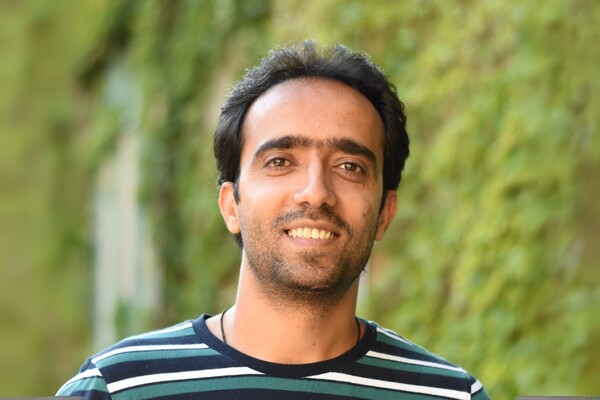Main Second Level Navigation
Donnelly Centre students organize Toronto’s first bioinformatics hackathon
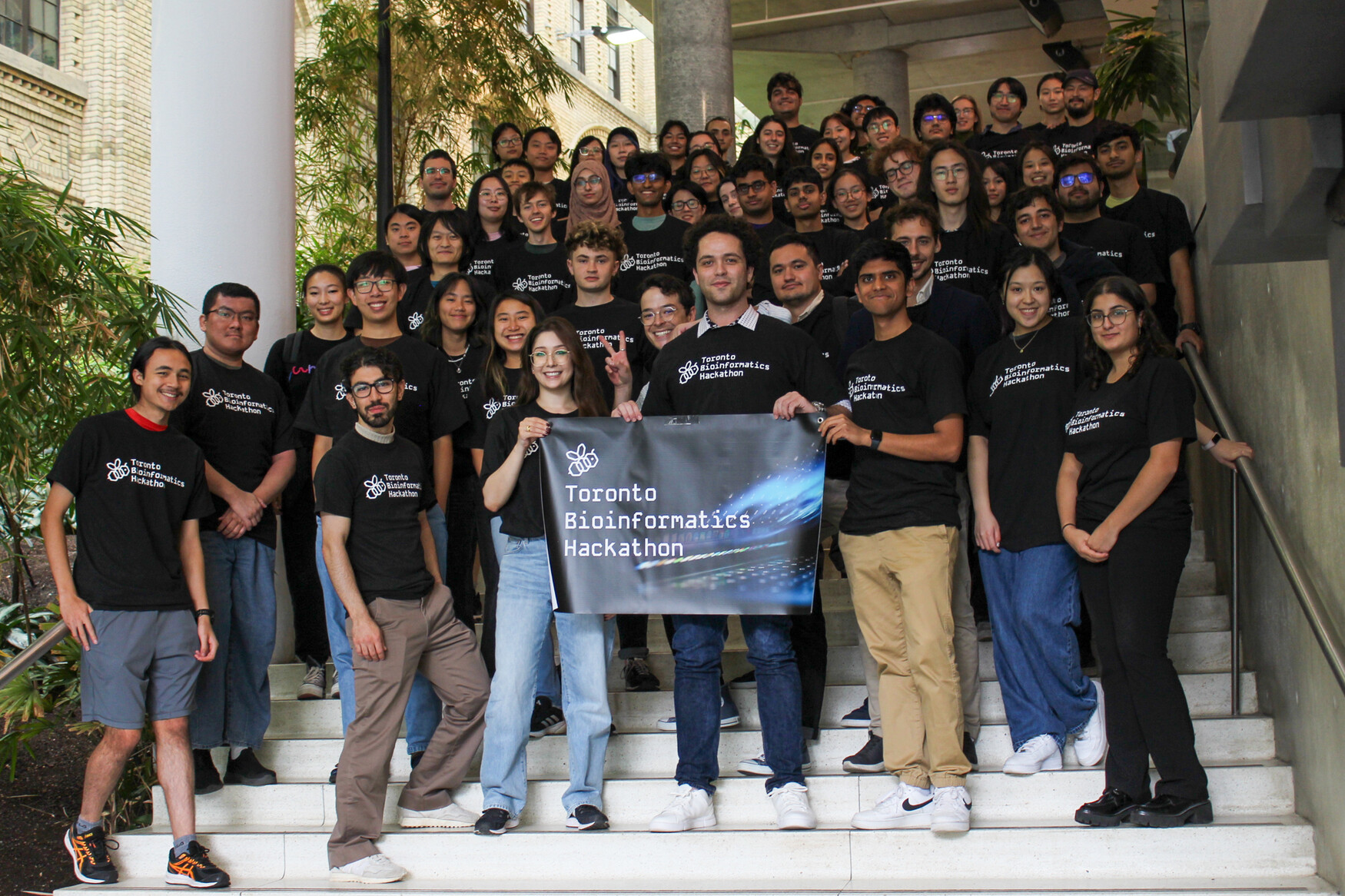
On the weekend of September 27-29, the Donnelly Centre for Cellular and Biomolecular Research hosted scientists from the Greater Toronto Area and beyond for the city’s first hackathon focused on developing solutions in bioinformatics.
The Toronto Bioinformatics Hackathon was organized by a team of students under the leadership of Jacob Fine, a PhD student in computational biology at the Donnelly Centre, who conceived of and founded the hackathon. The organizing team aimed to make the weekend-long event an opportunity for early-career scientists to collaborate on interdisciplinary projects using cutting-edge computational methods.
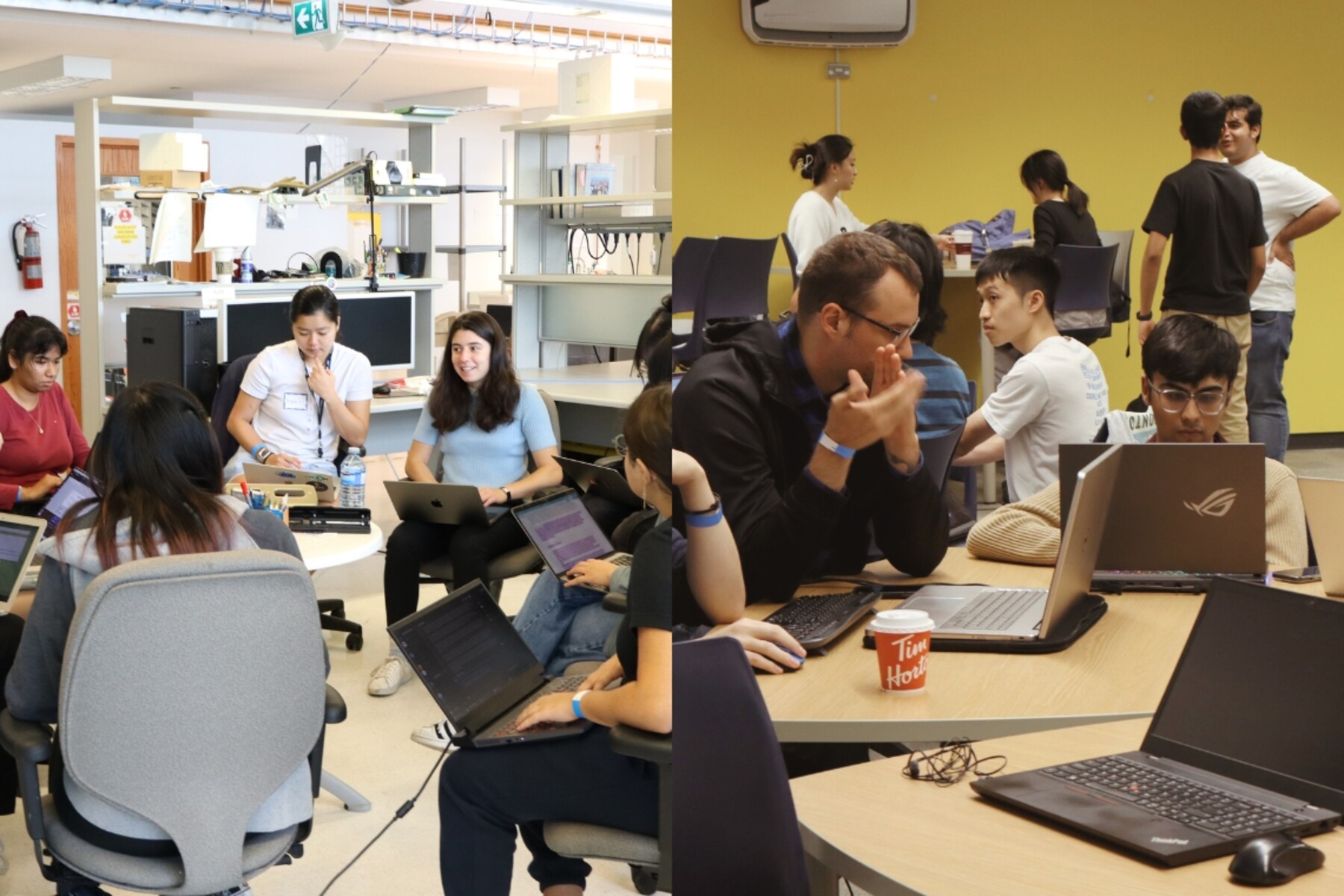
“Toronto is becoming a global hotspot for computational biology,” said Fine. “Right now, we've entered a new stage of biotechnology, where advanced quantitative and computational methods have become an indispensable part of the life sciences. My colleagues and I are looking to create a community that brings together people from multiple disciplines to solve key challenges in the growing and exciting field of computational biology.”
The inaugural hackathon saw over 70 participants come together at the Donnelly Centre to work on 12 projects – many of whom were undergraduates eager to break into bioinformatics and learn from experienced researchers. Other participants included graduate students and industry scientists. Hackers brought knowledge and skills from a wide range of fields, including computer science, mathematics, molecular genetics and systems biology.
“We were thrilled to see the diversity in domain knowledge of our participants,” said Emily Hashimoto-Roth, a PhD student in computational biology at the Donnelly Centre who played a key role in organizing and establishing the hackathon. “Now, more than ever, we can clearly see that early-career scientists are eager to come together, learn from each other and tackle complex biological problems. The community we hope to foster has massive potential for presenting innovative solutions to these problems. It’s an incredibly exciting time to study and work in bioinformatics, at the intersection of rapidly evolving disciplines.”
The hackathon culminated in an awards ceremony for the most promising projects and hackers. Two teams were named the first-prize winner and runner-up, and a third team was recognized for its innovation and project commercialization potential. One individual was also named the Collaborative Champion for embodying the spirit of cooperation and mentorship that was needed to make the hackathon a success.
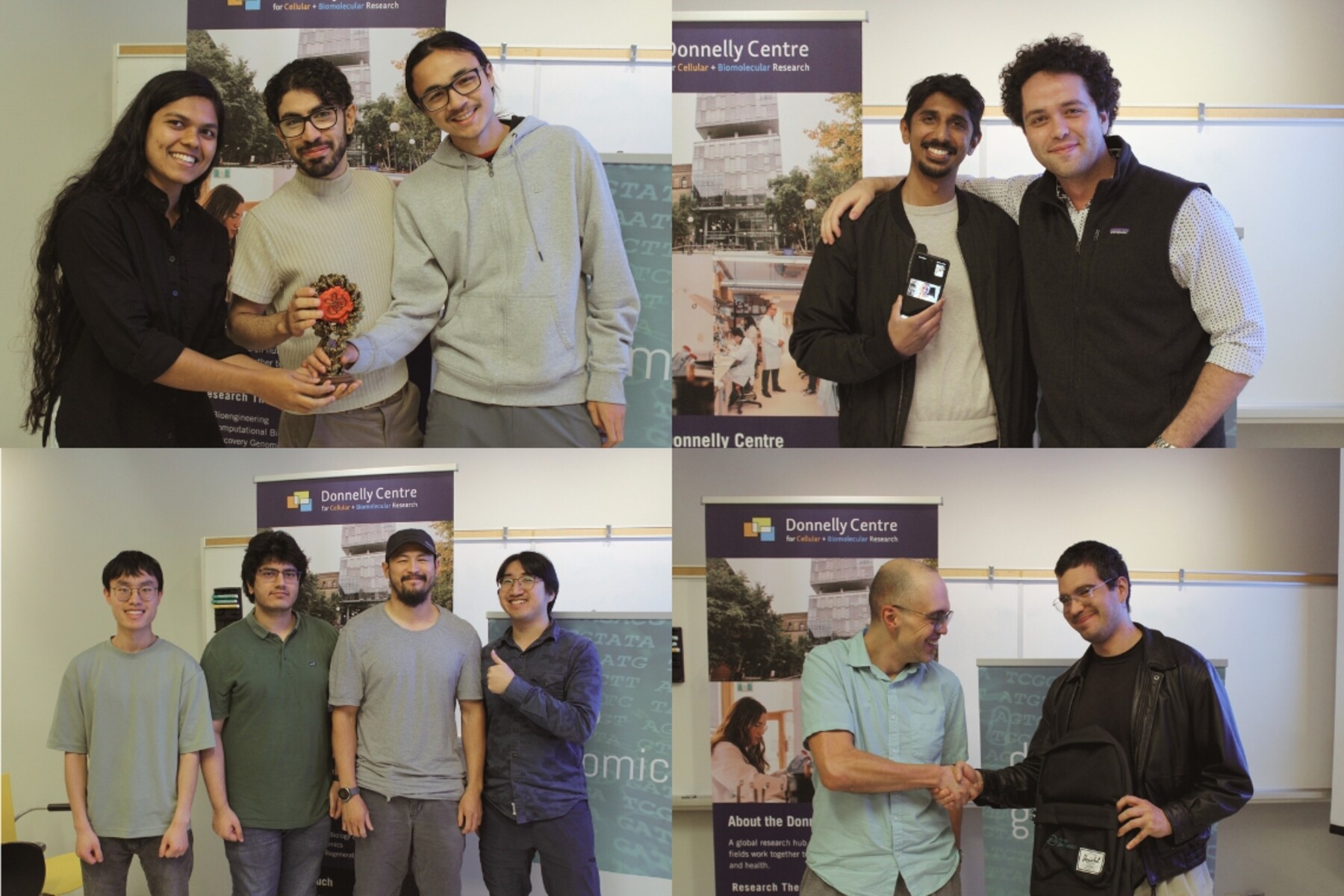
Award Winners
Tasfia Ara, Arvin Khoshboresh and Alexander Leonardos
Phil Fradkin, Cait Harrigan and Hassaan Maan
- Donnelly Centre Innovation and Commercialization Award: Diffusion Deconvolution of DIA-MS/MS Data
Justin Sing, Leon Xu, Jialu Fu and Saksham Malik
- Collaborative Champion: Matthew McFee
In addition to dedicating many hours to working on team projects, hackathon participants also attended a pub social and a workshop presented by Deep Genomics. The social kicked off the hackathon, providing opportunities for students to network with each other, as well as with industry leaders in biotechnology and faculty members.
Avishai Weissberg, software engineer at Deep Genomics, traveled to Toronto from the west coast to teach hackers how to use the company’s all-in-one genome analysis tool on the first full day of the hackathon. Hackers also heard from company representatives Jeff Wintersinger, a former Donnelly Centre PhD student, and Sara Pour, current PhD student at the Donnelly Centre.
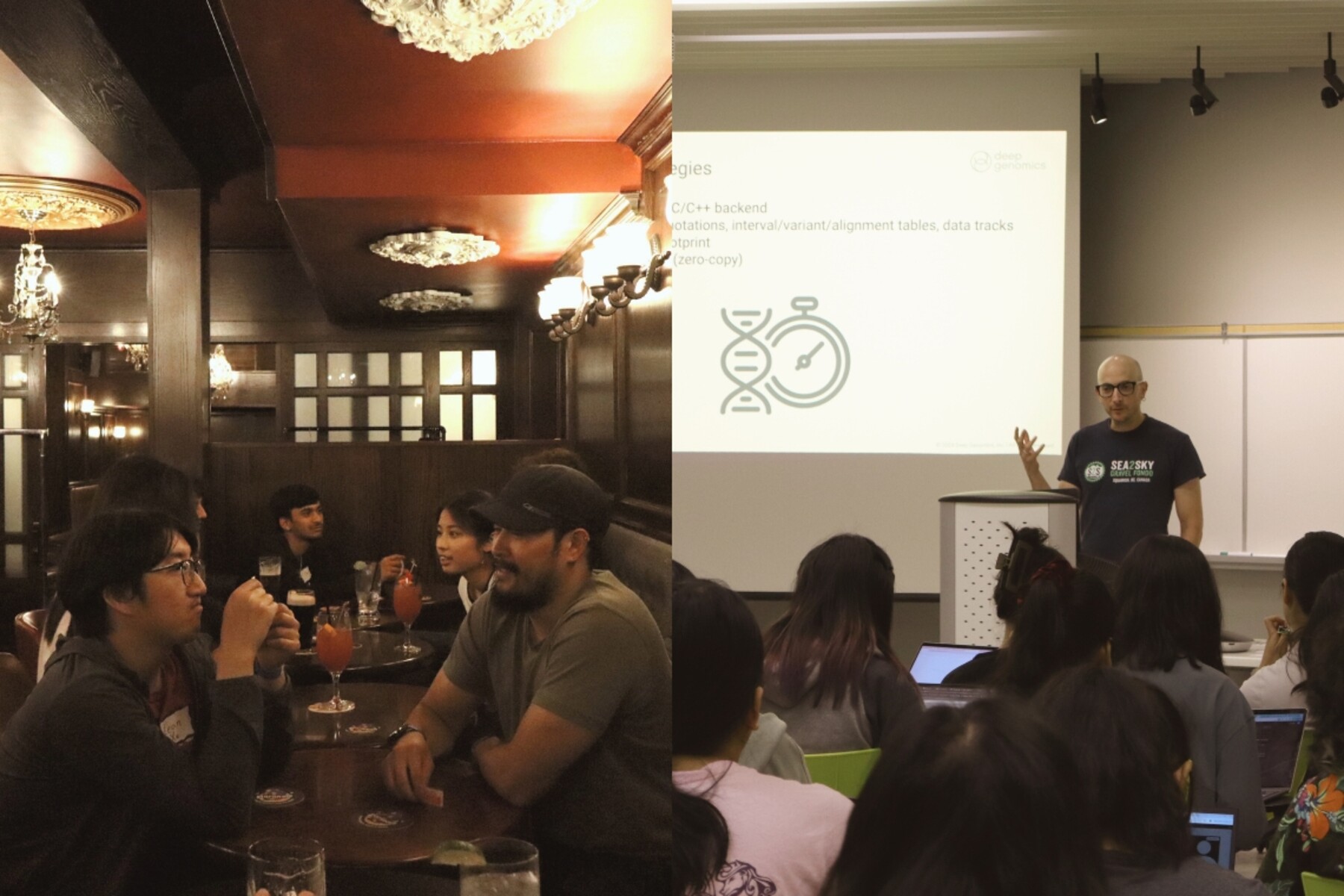
“The first Toronto Bioinformatics Hackathon was a huge success,” said Stéphane Angers, director of the Donnelly Centre. “I congratulate the organizing team on achieving their goal of launching a community of talented and enthusiastic researchers and industry professionals working in the computational biology space. The members of the organizing team are early-career scientists, in their own right, who have demonstrated leadership skills and instilled the Donnelly Centre’s drive for cross-disciplinary collaboration beyond our own faculty and trainees.”
Artem Babaian, assistant professor of molecular genetics at the Donnelly Centre, served as the faculty liaison for the hackathon, working closely with the organizing team to help make the hackathon a reality.
"These young minds harbour the next generation of scientific breakthroughs, and we wanted to create space for them to express this potential,” said Babaian. “The Toronto Bioinformatics Hackathon has captured the passion, innovation and attitude of successful hackathons past and made it their own. I'm excited to see how this hackathon will grow and the amazing leaders it will help empower."
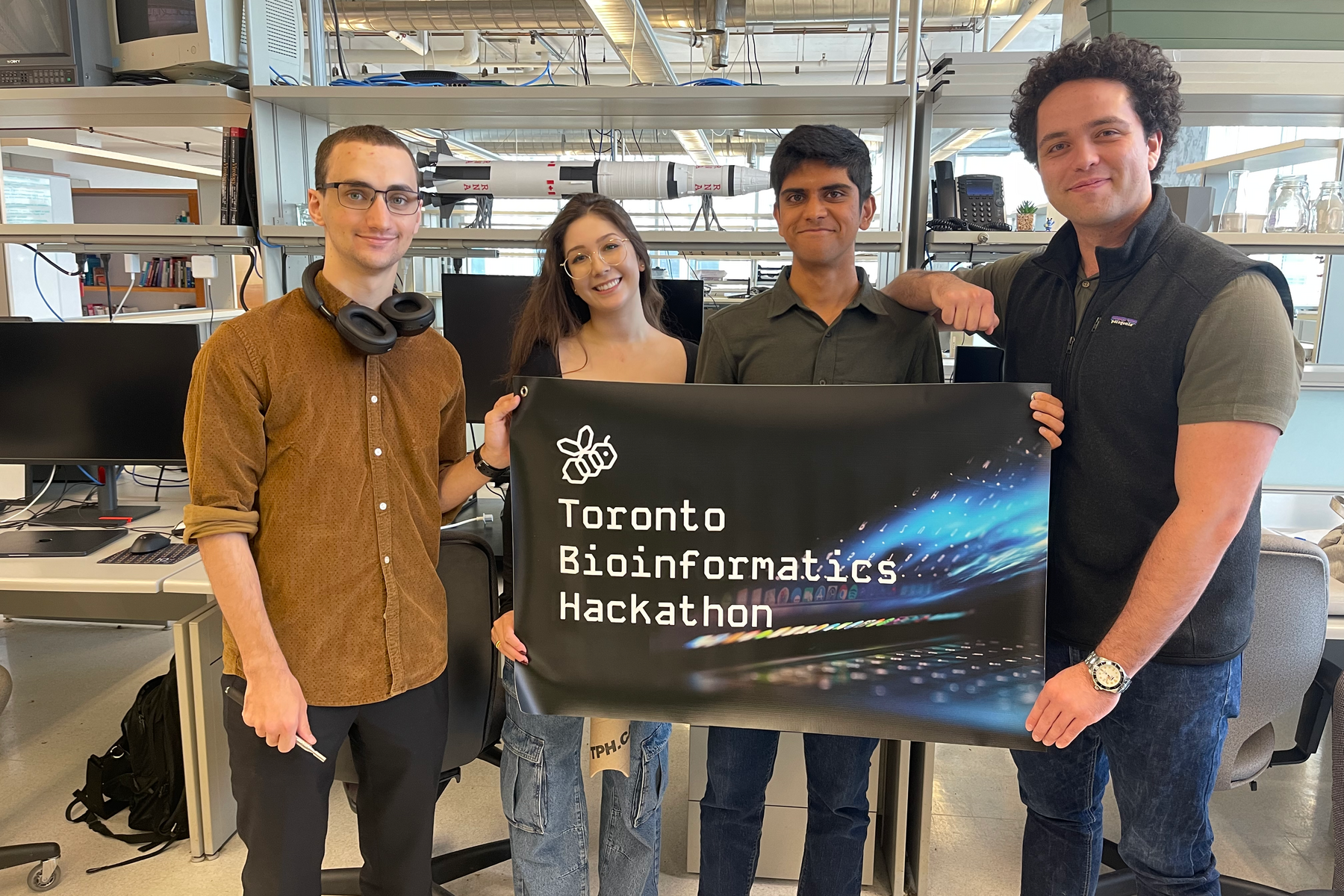
In addition to Fine and Hashimoto-Roth, the organizing team for the Toronto Bioinformatics Hackathon consists of Purav Gupta, Elia Afanasiev, Ira Horecka, Owen Tsai, Hyunbeen (Jason) Lee and Ali Rasoulzadeh. The team raised around $10,000 in the hopes of creating a hackathon experience that would be the first of its kind, where projects would be designed ahead of time and reviewed by the team to ensure they contribute meaningfully to the bioinformatics sector.
“I was blown away by how people came together at the hackathon,” said Gupta. “The teams and their projects were established beforehand so that every completed project would have potential for commercialization – this is a unique process you don’t typically see at hackathons. We received great feedback from the participants, most importantly that this was the best hackathon many of them have been a part of. I think we set the bar for hackathons moving forward.”
“We’re planning to make this an annual event,” said Fine. “Now that we know something like this is very much in demand, we’re going to come back even bigger and better next year.”
The Toronto Bioinformatics Hackathon was made possible with the support of the Donnelly Centre and Deep Genomics as platinum sponsors, as well as the Computational Biology in Molecular Genetics (CBMG) program and the Department of Molecular Genetics in the Temerty Faculty of Medicine.
Follow Toronto Bioinformatics Hackathon on Instagram and LinkedIn for news from the 2024 hackathon and announcements about the 2025 hackathon.
News


